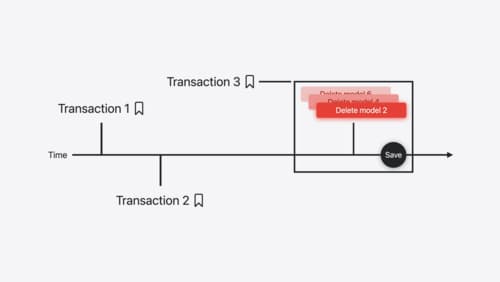custom swiftdata
Asked on 2024-08-13
1 search
SwiftData has introduced several new features and capabilities that enhance its flexibility and performance. One of the key updates is the ability to create custom data stores, allowing developers to use alternative backends for data storage beyond the default CoreData. This means you can now use SwiftData's API with backends like SQLite, a remote web service, or even a collection of JSON files. This flexibility is particularly useful for apps that require different storage solutions.
Additionally, SwiftData now supports indexing and unique constraints, which can make queries more efficient by optimizing how data is stored and retrieved. The framework also provides a history API to track changes in the datastore, which is beneficial for syncing local changes with a remote service.
For more detailed information on custom data stores, you can refer to the session Create a custom data store with SwiftData (04:50).
Relevant Sessions
- What’s new in SwiftData (05:39) - Custom data stores
- Create a custom data store with SwiftData (04:50) - Meet DataStore
- Track model changes with SwiftData history (12:37) - Custom stores

What’s new in SwiftData
SwiftData makes it easy to add persistence to your app with its expressive, declarative API. Learn about refinements to SwiftData, including compound uniqueness constraints, faster queries with #Index, queries in Xcode previews, and rich predicate expressions. Join us to explore how you can use all of these features to express richer models and improve performance in your app. To discover how to build a custom data store or use the history API in SwiftData, watch “Create a custom data store with SwiftData” and “Track model changes with SwiftData history”.

Platforms State of the Union
Discover the newest advancements on Apple platforms.

Track model changes with SwiftData history
Reveal the history of your model’s changes with SwiftData! Use the history API to understand when data store changes occurred, and learn how to use this information to build features like remote server sync and out-of-process change handing in your app. We’ll also cover how you can build support for the history API into a custom data store.
